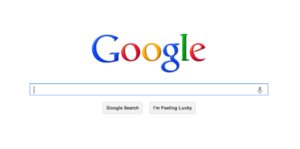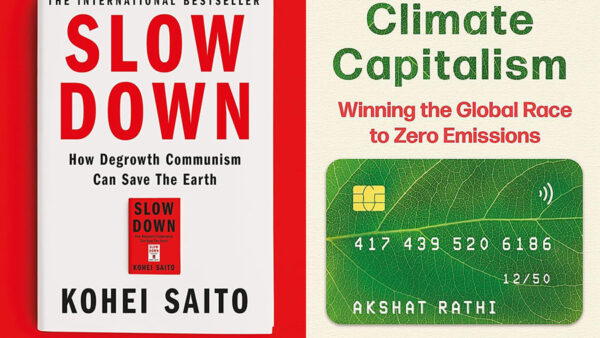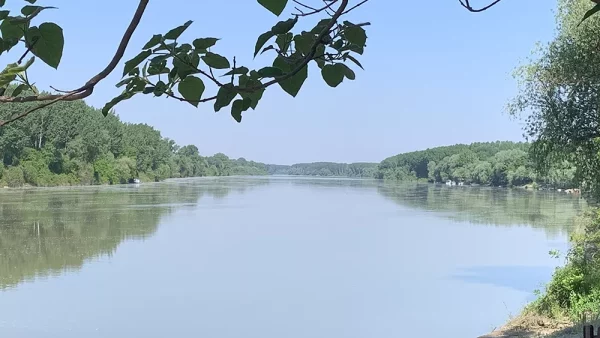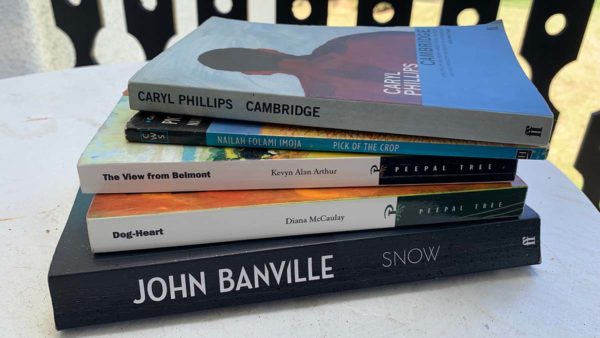Whatever did we do before the internet? How did we manage before Google?
 I’m hearing these questions more often these days, usually after someone’s discovered some snippet of astonishing information in just a few seconds. The questions are rhetorical of course, but it occurs to me that one day people might really want to know. I’m conscious of being a member of the last generation to remember life before the internet, so I want to explain what it was like. How did we manage without Google at our fingertips?
I’m hearing these questions more often these days, usually after someone’s discovered some snippet of astonishing information in just a few seconds. The questions are rhetorical of course, but it occurs to me that one day people might really want to know. I’m conscious of being a member of the last generation to remember life before the internet, so I want to explain what it was like. How did we manage without Google at our fingertips?
The short answer: we interacted with other human beings.
Yes, strange as it may seem to you iPhone-wielding teens, that’s what we old-timers used to do. We looked at our hands and, finding in them no gadget providing instant access to the world’s store of information, we looked up and out into the world instead, and began the long, laborious and sometimes futile process of searching out the knowledge for ourselves.
An example
In the old days, if I wanted to know the lyrics to The Sidewinder Sleeps Tonite, I’d call my friend Dave who was an avid R.E.M. fan and we’d have a half-hour argument about whether Michael Stipe was saying “Tell me are you locked in the punch” or “Tell me are you locked in the bar” and I’d go to the music store and ask the guy there who knew every song, and it would go on from there until I either found out or gave up looking.
Depending on the information I was looking for, there was always the library, or an encyclopaedia. Sometimes I’d even go through the Yellow Pages and call companies asking for information. But frequently it was about deciding who among my family, friends and acquaintances might know, or know someone who knew, and following the trail from person to person as we now surf from site to site.
Memory and giving up
Another place I looked was in my own mind. Being unable back then to outsource my memory to Google, I devoted more energy to memorising things, and it was more likely that I’d find a fact or figure in there.
If I couldn’t find the information in my memory, or in a book, and if nobody else knew, then here’s what I’d do: I’d shrug my shoulders, and accept the state of not-knowing. It really wasn’t that bad. Usually I’d come across the information I was looking for in the end, coming across it by chance in a newspaper article or an overheard conversation on a train. If I didn’t, I had to think about how to live life without that piece of information. There was usually a way.
Which is better?
You’ll have detected a note of nostalgia in my post, I’m sure. Surely I’m not really saying that I’d like to go back to those days when information was so hard to find?
Well, it’s a bit like asking whether travelling to Timbuktu is better or worse now that there’s an airport and you don’t have to bump across the desert for days on the back of a camel. The answer, to me, is that it’s better and it’s worse. It’s great that Timbuktu is more accessible, but the experience of seeing it rise up out of the desert as if by magic has been lost. Even those who still choose to go there by camel will be conscious of the fact that there’s a much easier way and feel a bit ridiculous about it. The mystique of the place was so great that for many (pre-internet) years I didn’t even know it existed in the real world – to me it just meant “the most distant place in the world”.
Typing a keyword in Google and getting an answer spat out at me in 0.37 seconds is infinitely better in every practical sense than those long winding conversations with Dave. But in some other sense, I feel that something has been lost. In the ease of discovery we lose some of the pleasure of discovery. The world is less mysterious now, and to me that’s both a good thing and a thing to be mourned.



There are 23 comments
Ah yes, I remember those days…we talked instead of pushing buttons. I think both are good, talking to people and having instant access to information. I would love nothing more than to be able to go to the library and spend hours with my nose in a book, looking for information. Sadly, there’s only one English library here, it would take me at least an hour to get there and it’s not very big either. So in my case, I’m very grateful for Google.
Yes, I’m grateful too! It makes a lot of things possible that wouldn’t otherwise be possible. I do think there’s a cost, though.
It’s hard to remember and understand, being partly a member of that generation too, but I suppose we really will have people who simply won’t understand how to live without it. That’s scary. It was difficult to find information before, encyclopaedias were wanting and it was far more difficult to know about the world, but we focused on others much better and interacted with the real world more. I’d agree, there are benefits and losses.
Hi Charlie
It’s strange, isn’t it, imagining a world where all the information you want has always been at your fingertips? Must be just as strange for them to imagine a world in which it wasn’t. Makes me wonder if the generation gap will be even larger in this particular generation than usual.
Very interesting post!
I am an information addict and I shudder to think of what life would be like without the internet. Yet I am 45 years old and I managed just fine for years without it for decades.
I think that I can say that I have not reduced my social interactions due to the digital revolution. However your example of calling a friend might point to some subtle losses in human contact that may not be so apparent.
It’s funny, isn’t it, how it now seems so indispensable but, as you say, we managed just fine without it for a long time.
Interesting point about social interactions. Mine probably haven’t reduced overall either – in fact, the web facilitates a lot of interaction that was more difficult before. Email, Facebook etc have allowed me to keep in touch with people I know I’d have lost touch with in the days of phone calls and letters. I guess my point was that the nature of the interactions has changed, and that the way we find information has changed enormously. Thanks for adding your experience!
Take heart, as a librarian I know for a fact that Google doesn’t have all the answers. It has a good many of them to be sure, but sometimes, depending on what you are looking for, a library database or *gasp* a book, will provide an answer that Google can’t.
Ah, good point, Stefanie! I was thinking of more simple, day-to-day questions, but you’re absolutely right that there’s a lot of information beyond the reach of search engines. My phrase “instant access to the world’s store of knowledge” was clearly an exaggeration — although I think Google is working on it!
I just stumbled across the posting–by Googling. Ha. I merely wished to know if there were others out there who still remembered, or cared to remember, what society was before we were all plugged in at all times.
I was a baby when the fledgling internet was introduced, but I didn’t become a full-time internet user until sometime around 7th grade. Believe me, everyone, when I say that as a member of the last pre-internet generation, I will forever hold that time of “not knowing” close to my heart.
It’s kind of special, though, don’t you think? That soon enough, we will have an experience that most of the people in the world will never have–no internet.
And plus, I can’t wait to write my best-selling memoirs on my life before the Internet.
Hi Hannah,
I’m glad you stumbled across me! Hey, Google is good for something 🙂
You’re right, we have reached a time (in rich countries at least) where it seems odd to imagine a time before the internet. When I was a child in the 1980s, TV was such a big part of my life that it was hard to imagine my parents growing up without it. I guess the kids of today and tomorrow will look at people like us with similar bemusement. Thanks for commenting!
whats your source for this article? google? exactly
No, I didn’t use Google for this article. I used my memory. I do use Google all the time, of course, and as I said in the article, it’s very useful. I’m just saying that as with many things in life, when you gain something, you also lose something. Thanks for reading.
What do you do when people make you cry? what do you do when mom steals your candy? What do you do when the ice cream man offers you a ride? How is you name Andrew BLACKman when your not black? Find that in a book Andrew WHITEman
I honestly have no idea how to reply to this comment, but thanks for stopping by anyway.
I’m probably a bit late to the party, but hey! Great article. I agree we have gained a lot and lost a bit too. Love your reply to Reggie – ‘I honestly don’t know how to reply to this comment, but thanks for stopping by anyway’. I would not know how to reply to that comment either, maybe we should google it?!
well, I’ve had Google and electronics as long as u can remember (being as I’m not very old) but hearing this from you Charlie I think I would rather go back to the time when electronic devices weren’t around. it sounds so much better. nowadays people are so much in their phone that they wouldn’t even notice let’s say a panda walking in front of them in the city. this is my opinion. but basically when electronics weren’t around people could live a life….
Haha, it’s true about the panda, Bryce – I see people so immersed in their phones that they’re unaware of anything! As I said in the article, all these devices bring a lot of advantages, but it’s important to be aware of the downsides. But if you’ve never known anything else, it must be hard to be aware of those downsides…
This might surprise you, but as a young guy who was born in the 80s, I also agree that having Google or even the internet in general has pros as well as cons. I thought of the same reasons you did. But, keep in mind I’m saying this as someone who has used internet since he was a teen, so it has been around for more than half of my life. I sometimes think it would be fun to go back in time to when we didn’t have the internet, even though I only remember what life was like without it as a child. I think of things this way: if humans survived for hundreds of years without the internet, and other modern technologies like cellphones, life couldn’t have been all that bad. Old movies, TV show episodes and home videos from my childhood also prove that we all got along just fine, or in many ways even better, without all the modern technology.
First of all, the REM song with the lyric you mentioned is not Sidewinder but “Man on the Moon”. Second, you can clearly hear Michael Stipe say ” punch” not “bar”.
It’s all about balance I guess. You correctly pointed to the pleasure of discovery, which is evidently lost in these days. That pleasure was the source of motivation, the source of extra search and we were discoverers. It’s about internal realization of an attribute. We were seekers back then. That character were useful for other parts of life. To find out the good woman suitable for you, to find out a better future for your children. Balance is the answer. To live in a world of easily accessible information, yet keeping the discovery spirit.
Yes! That’s beautifully put, Saeed.
I think the greatest loss has been the interactions between children and their parents. My mother always says that I never used to shut up as a kid, and always asked them questions. As younger and younger children are using the Internet and Google in particular, this connection is being lost.
Those questions, and the interaction with my parents is where a great deal of my respect for my parents and the older generations grew. As new generations rely more and more on stored knowledge, they lose the connection of having the knowledge imparted on them.
Hi Ben,
This is an excellent point! I hadn’t thought of that. I certainly have memories of asking my parents all kinds of things about the world, and there’s that age when you think your parents are the source of all knowledge about everything. That fades as you get older, of course, but it’s an important foundational memory and establishes those connections and that respect that you mention. It scares me to think of that role being taken by Google.